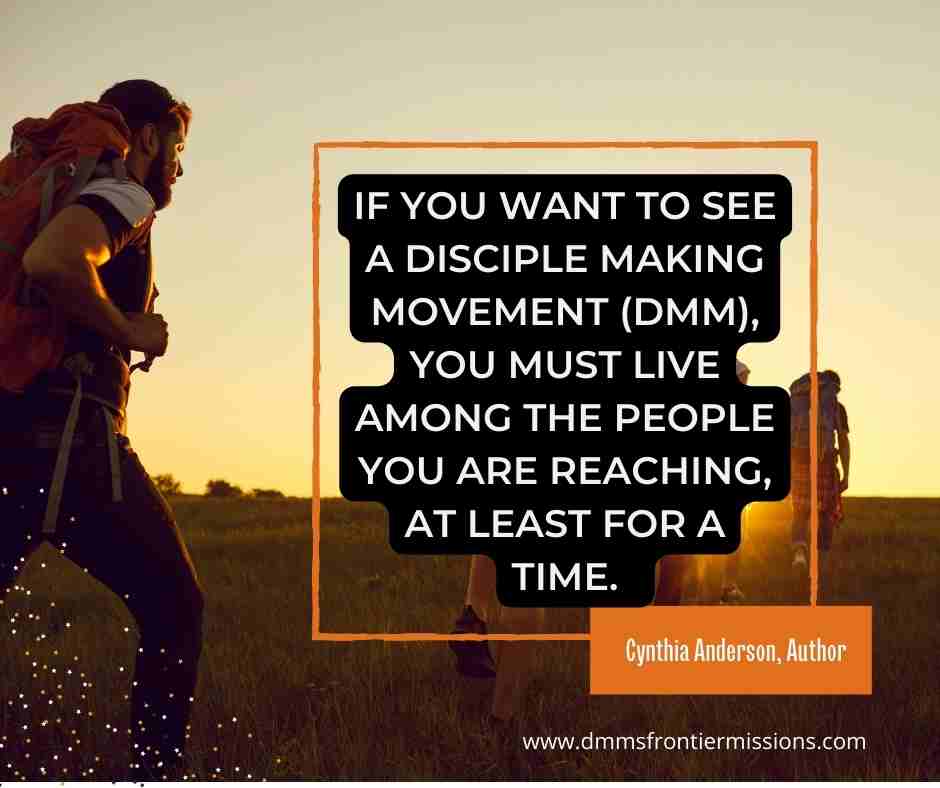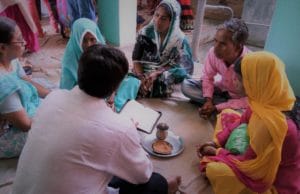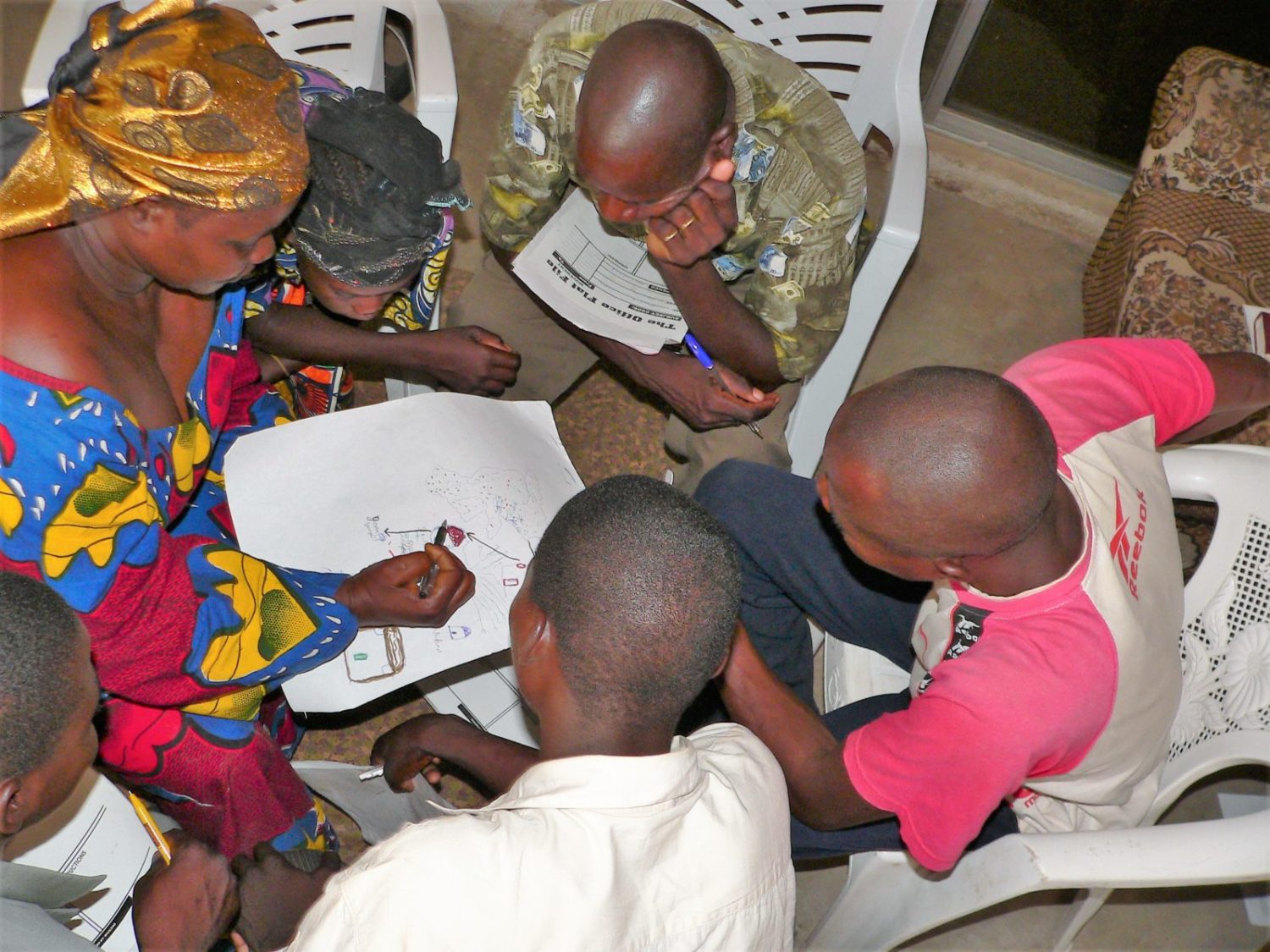“My children’s school is far from my ministry field,” a trainee said. “I need to live where my children can go to a good school.” How important is it that we live among the people we’re trying to reach? If we can’t live on-site how much will that affect our fruitfulness? It is important to consider the significance of this. Sometimes this is called incarnational ministry.
Jesus was incarnational. Though He was God, he took on human flesh and became a man. He left heaven, came to earth, and lived among us. Through that, He helped us to see what God the Father was like. God incarnate. Jesus is our model. How important is it to physically plant ourselves among those we are reaching? This article addresses, not the issue of adapting to culture, but the question of living among the people we serve.
Do We Need To Live Among Them?
This is an important question for both cross-cultural and national missionaries. There are often many barriers to living among the people God has called us to.
Does the principle of incarnational ministry mean that the only way to do missions is to live among those we want to reach? What about loving and providing for our families and their needs? What if the place I’m trying to reach is very far away, or I can’t get a visa to stay there?
The Book Of Acts Includes Both Models
In the Gospels and Acts, we see both models. We see examples of living among the people, and of traveling in and out of a place to minister. There isn’t only one model that can work. It is crucial to consider the depth and quality of relationships you can develop if you live in a different location from those you are discipling. What level of influence upon a community can you have, if not there among them? If you can not live there, what can you do to deepen relationships and trust in other ways?
Trust is developed by spending much time among the people you are reaching. It takes many hours of doing life together to earn a place where you can speak freely into someone’s life. If you are working cross-culturally, and learning a new language and worldview, this is even more true.
Difficulties With The “In and Out” Model
I talked with a church planter in North India who was focused on an area quite distant from his home. He had to take a bus to this location whenever he went. The bus ride took an hour each way. It took time, energy, and money to go there. He went twice a week, stayed a few hours, and came home. Though his primary ministry location, that was the total effort given – 4 or 5 hours a week on-site. He wasn’t seeing much fruit and the people he was trying to disciple were growing in their faith at a disturbingly slow pace. They certainly weren’t training others.
Philippians Chapter Two tells us of the humble sacrifice of Jesus when He came and lived among us, ministering incarnationally. It wasn’t easy. He had to leave heaven. He suffered in many ways to provide our salvation and to show us who God was. His incarnation, living among us as one of us, made this possible.
Reasons We Don’t Live Among Our Target Group
Sometimes I wonder if the reason we don’t live among the people we are trying to reach is simply a lack of commitment. I am not saying there is no cost to us or our families for us to uproot and move to a remote or difficult location. The educational needs of children are a huge factor for many. Perhaps sometimes, however, we lack the depth of commitment needed to find creative solutions to this issue of living with them.
Other times, there is a lack of understanding of how much it means to people when we become part of their community rather than a visiting outsider. I’m convinced that if we want to see a Disciple Making Movement (DMM), we must live among the people we are reaching, at least for a time. It might be a month, several months, or a year or two. We see all these time frames in Paul’s ministry. Some places required him to stay longer than others.

It doesn’t mean we have to stay forever. It can be beneficial, once the Person of Peace is found, and the first church started, to move away. We can then visit regularly, continuing to train and invest in the Person of Peace. They then reach their community.
If we never live among them, however, it’s doubtful that we will develop the depth of relationship like Paul had with Timothy, Titus, and Philemon or that Jesus had with His disciples.
Are you living apart from those you are reaching? Consider setting aside a time to go and live there. Even if it is just for a month or two, this could dramatically increase your chance of impact. Or, consider focusing on an area near your home, a place you can visit daily for at least several hours. Moving into the community, living in the home of the Person of Peace, was the model Jesus taught in Luke 10.
Think creatively. Reasons for not living among the people are likely valid. God has solutions. He can show us creative ways to live among the people we are reaching more, even if we can’t live there permanently. As we choose to live among them, impact and fruitfulness will increase.
Living incarnationally is not only about being physically present. What else does it mean? Share your thoughts in the comments below.




Comments
I saw this on Facebook before I click the link. I love it all that’s why I want to know more.
Author
That is great! Please follow us to continue to learn more in the coming days.
I love to travel and meet people and share with them the words of God
Thank you so much Cynthia for this insightful article. I totally agree that our physical presence among the people we are trying to reach is critically important. However, if circumstances cannot allow us allow to be physically present, I believe other options can be:
1. Empowering and delegating someone or a team that can be there on our behalf.
2. And a virtual follow up regularly with that team can be helpful.
Warm regards,
Phabian
Am learning a lot more encouraging as I am living among the Muslims community. This is exactly what happened if you are living among them, the work is easy. Thanks for the teachings.
Well first of all I say thank you may the Lord bless you! Yes, in order to succeed in our mission or to have the result of the seed, we need more time with these people and human beings like to be touched continuously. But for lack of means we end up badly, my prayer is that the Lord helps us to overcome more
I am impressed about your teaching ,I am a missionary working in Ghana upper East , I am refreshed , especially Paul model of doing missions work , I am blessed for your presentation .
Author
Thankyou for that encouraging feedback!
I saw this on facebook I click the link. I love all that because every moment I want to know the love of God. Thank you God bless you
Dear Sis. Cynthia, I thoroughly enjoyed the topic and the well- writ style.
I am the Editor of Outreach, the official organ of a Cross Cultural Missionary organisation in India, called the Indian Evangelical Mission. We are around 900 workers serving around 200 + people groups, speaking a wide variety of languages. We do prioritize living among people groups. In this connection, your article would serve as a thought provoking, encouraging one. Will you give permission to reprint your article in our in house bulletin that we are reviving again, called the ‘ Amongst Ourselves’?
Kindly send your email id for you to peep inside our magazine
Author
I’ve just replied to the above. Feel free to reach out to hello@ywamfm.org
Very thought provoking @ can you allow us to reproduce the article in our inhouse bulletin.
I am the Editor of Outreach, the official organ of a Cross Cultural Missionary Organisation in India serving around 200+ people groups.
Apart from Outreach, we have an in-house bulletin called Amongst Ourselves. Will you give us permission to reproduce your article in our bulletin please.
Author
Yes you can do that as long as you give us full credit and list this website. Thanks.
Living incarnationally is not only about being physically present. It’s also about being socioeconomically present. If I have two cars, eat out at nice restaurants, and I’m always doing renovations on my huge house — all while my neighbors struggle to buy food — how can I preach about self-sacrificial generosity, humility, and contentment?
We do not have to “become poor” (like Jesus did), because that might be impossible. But we may have to intentionally live below our means in order to connect with the people we are serving.
Author
Well said. Thanks for sharing.
I want to learn more how I can be a disciple multiplier to the gospel wherever I read this i feel the.power to start sowing.
Thank you very much for the great work your. Am pastor ken mukisa from Uganda Africa Esthern. I have church called Heaven’s ark Christian center ministers. Location budaka town and children’s ministry. Our vision to connect lives in Christ.
Our prayers we need pamant building church
Author
Church buildings weren’t needed by Jesus and his disciples and the gospel spread! Maybe you are not focusing on the right things. Consider making disciples as your highest priority and not relying on buildings to see multiplication.
I totally agree with the idea of being close to them so often. It might look simple but they value your presence.
Disciple making is not easy when it’s long distance yet this needs total commitment.
Challenges are always there, since you are also entitled to balance up with family values yet most important thing is commitment.
I want to join in your Jesus family.i want to get all protection
Thank you for this insightful teaching. I total agreed with you write up, we also need courage and commitment in discipline making
Thank you, pastor Cynthia, looking forward to receive more models for your teachings, so as to spread the good news to many nations
I’m grateful
AM very much encouraged, and helped with the teachings, am humbled to be part of you family so that together we can make more disciples, God bless you as you continue doing good job